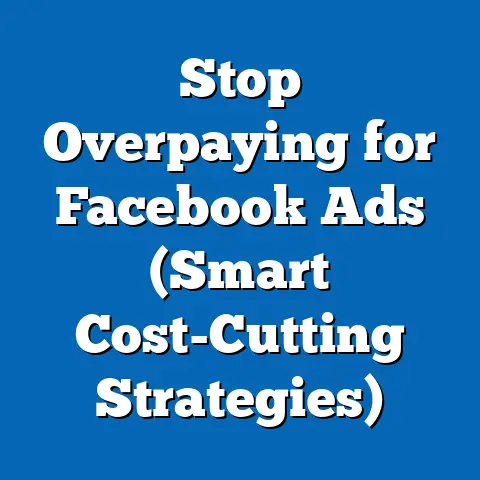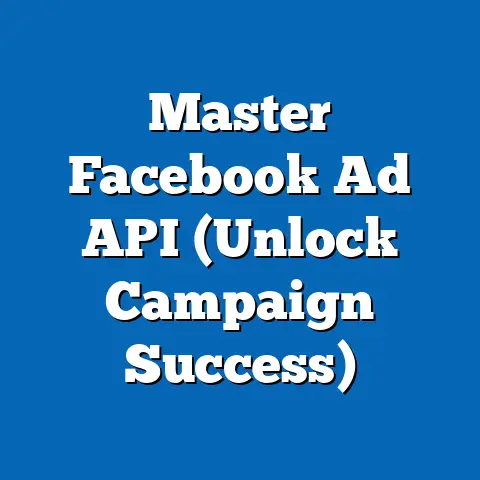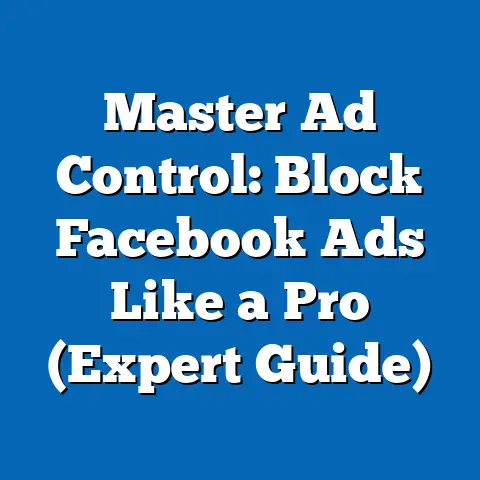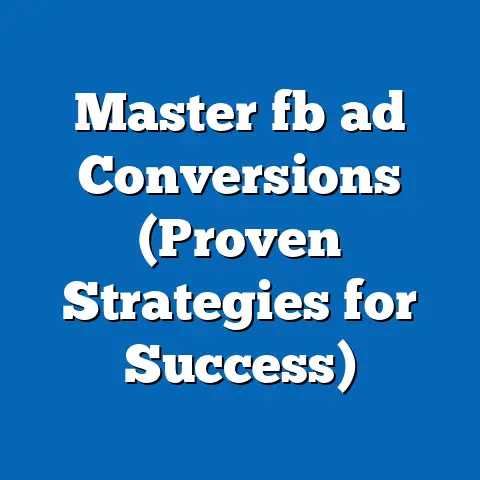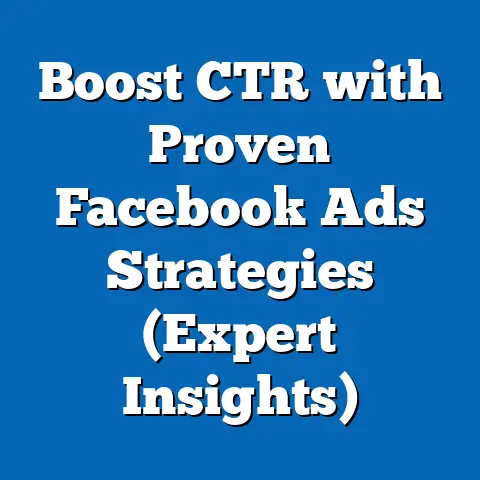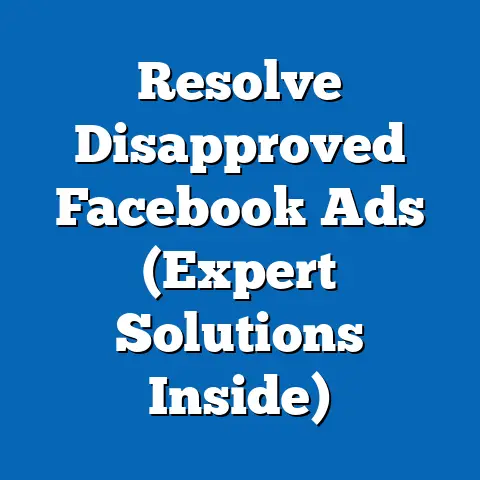Can Editors Craft Winning Facebook Ads? (Expert Insights)
We’ve all seen them – those Facebook ads that somehow manage to interrupt our endless scroll with something that actually grabs our attention.
Sometimes, it’s a dazzling visual, but more often than not, it’s the words.
The words that tell a story, pique our curiosity, or address a need we didn’t even know we had.
Have you ever wondered who is behind them?
It’s not always the marketing gurus, but sometimes, it’s the unsung heroes of the writing world: editors.
I remember once reading a product description for a seemingly unremarkable kitchen sponge.
It was supposed to be just a list of features: durable, absorbent, non-scratch.
But the editor, a friend of mine, transformed it into a tale of culinary adventure, describing how the sponge fearlessly battled burnt-on food, leaving sparkling clean surfaces in its wake.
It was hilarious, engaging, and, yes, I actually considered buying that sponge!
This got me thinking: if an editor can make a sponge sound exciting, what could they do for a Facebook ad?
In this article, I’ll explore the surprising power of editorial skills in the world of Facebook advertising, diving into how editors are uniquely positioned to craft winning campaigns.
The Role of an Editor in the Creative Process
When you think of an editor, you might picture someone hunched over a manuscript, meticulously correcting grammar and punctuation.
And while that’s certainly part of the job, the role of an editor is far more expansive.
At its core, editing is about making content better.
It’s about ensuring clarity, conciseness, and engagement.
Traditionally, editors are the gatekeepers of quality in publishing and media.
They refine articles, books, and other written materials, ensuring they are not only grammatically correct but also compelling and coherent.
A good editor understands the target audience, the message being conveyed, and the best way to deliver that message effectively.
These skills translate beautifully to the world of advertising.
After all, what is an ad but a piece of content designed to persuade?
In the fast-paced, attention-deficit world of social media, clarity and brevity are paramount.
You have mere seconds to capture someone’s attention before they scroll past.
An editor’s ability to distill complex information into easily digestible nuggets is invaluable.
I’ve personally witnessed this transformation firsthand.
I once worked with a client who had a fantastic product but struggled to articulate its value in their Facebook ads.
Their initial copy was riddled with jargon and vague claims.
After an editor stepped in, the copy was completely revamped.
The language became clear, concise, and focused on the benefits to the customer.
The result?
A significant increase in click-through rates and conversions.
Takeaway: Editors bring a unique skillset to the table, focusing on clarity, conciseness, and audience engagement – all essential ingredients for successful Facebook ads.
Understanding the Facebook Advertising Landscape
Facebook, with its billions of active users, is a goldmine for advertisers.
But navigating this landscape can be daunting.
It’s not enough to simply throw up an ad and hope for the best.
To succeed on Facebook, you need to understand the platform, its users, and the tools at your disposal.
One of the key strengths of Facebook advertising is its sophisticated targeting capabilities.
You can target users based on demographics (age, location, gender), interests, behaviors, and even their connections to other pages.
This allows you to reach a highly specific audience with tailored messages.
Beyond targeting, Facebook offers a variety of ad formats, from simple image ads to engaging video ads and interactive carousel ads.
Each format has its own strengths and weaknesses, and choosing the right one is crucial for maximizing impact.
The numbers speak for themselves.
According to recent statistics, Facebook ads continue to be a powerful tool for businesses of all sizes.
But here’s the kicker: With so many businesses vying for attention, the competition is fierce.
Standing out from the crowd requires creativity, strategic thinking, and, yes, excellent writing.
I’ve seen countless examples of businesses that have struggled to achieve results on Facebook, not because their product was bad, but because their ads were poorly written and targeted.
They failed to connect with their audience on an emotional level, and their message got lost in the noise.
Takeaway: Facebook advertising offers incredible opportunities, but success requires understanding the platform, its users, and the importance of targeted, well-crafted ads.
Key Elements of a Winning Facebook Ad
So, what exactly makes a Facebook ad a winner?
It’s not just about having a great product or service.
It’s about crafting an ad that resonates with your target audience and compels them to take action.
Here are some key elements to consider:
- Eye-Catching Visuals: In a sea of scrolling content, visuals are your first chance to grab attention.
High-quality images and videos are essential.
They should be relevant to your product or service and visually appealing to your target audience. - Compelling Copy: The words you use are just as important as the visuals.
Your headline should be attention-grabbing and clearly communicate the value proposition.
The body text should be concise, engaging, and focused on the benefits to the customer.
And of course, a strong call-to-action (CTA) is crucial for driving conversions. - Emotional Appeal: People buy with their emotions and justify with logic.
Tap into your audience’s emotions by telling stories, highlighting relatable experiences, or addressing their pain points. - Testing and Optimization: Facebook advertising is not a “set it and forget it” endeavor.
It requires continuous testing and optimization.
Experiment with different ad formats, targeting options, and copy variations to see what works best.
I once worked on a campaign for a local bakery.
The initial ads featured stock photos of pastries and generic copy.
They performed poorly.
We decided to try a different approach, focusing on storytelling.
We created a video ad that showed the baker, a passionate artisan, handcrafting his creations.
The copy highlighted the bakery’s commitment to using fresh, local ingredients.
The result was a dramatic increase in engagement and sales.
Takeaway: Winning Facebook ads combine eye-catching visuals, compelling copy, emotional appeal, and continuous testing and optimization.
Expert Insights from Editors Who Transitioned to Advertising
To get a deeper understanding of the role of editors in Facebook advertising, I spoke with several editors who made the leap into the advertising world.
Their insights were invaluable.
Sarah, a former book editor, now works as a copywriter for a digital marketing agency. She told me, “My background in editing has been incredibly helpful in crafting Facebook ads.
I’m able to quickly identify weak spots in the copy and make it more concise, engaging, and persuasive.
I also have a strong understanding of storytelling, which allows me to create ads that connect with people on an emotional level.”
Mark, a former news editor, is now a content strategist for a tech company. He said, “One of the biggest challenges in Facebook advertising is cutting through the noise.
As an editor, I’m trained to identify the most important information and present it in a clear, concise way.
This skill is essential for crafting headlines and ad copy that grab attention and communicate the value proposition effectively.”
Lisa, a former magazine editor, now runs her own social media marketing agency. She shared, “My experience in editing has taught me the importance of understanding the target audience.
Before I start writing an ad, I always take the time to research the audience and understand their needs and interests.
This allows me to create ads that are highly relevant and engaging.”
All three editors emphasized the importance of clarity, conciseness, and understanding the target audience.
They also highlighted the value of storytelling and the ability to identify and fix weak spots in the copy.
Takeaway: Editors who transition to advertising bring a wealth of valuable skills and experience, contributing to the creation of more effective Facebook ad campaigns.
The Creative Collaboration between Editors and Advertisers
While editors possess unique skills that are valuable in Facebook advertising, they are not a replacement for advertisers.
The most successful campaigns often result from a creative collaboration between editors and advertisers.
Advertisers bring expertise in marketing strategy, audience targeting, and data analysis.
Editors bring expertise in writing, storytelling, and ensuring clarity and engagement.
By combining these skills, you can create Facebook ads that are not only strategically sound but also creatively compelling.
I’ve seen this collaboration work wonders firsthand.
I once worked with a team that included both a seasoned advertiser and a talented editor.
The advertiser was responsible for setting the overall marketing strategy and identifying the target audience.
The editor was responsible for crafting the ad copy and ensuring it was clear, concise, and engaging.
The result was a Facebook ad campaign that exceeded all expectations.
The key to a successful collaboration is communication and understanding each other’s objectives.
Advertisers need to be open to the editor’s suggestions and feedback.
Editors need to be aware of the marketing strategy and the specific goals of the campaign.
Takeaway: Creative collaboration between editors and advertisers leads to more effective Facebook ad campaigns, combining strategic thinking with compelling writing.
Future Trends in Facebook Advertising and Editorial Influence
The world of Facebook advertising is constantly evolving.
New technologies and trends are emerging all the time.
As we look to the future, it’s important to consider how these changes will impact the role of editors and the influence of editorial skills.
One of the biggest trends is the rise of AI-generated ads.
Artificial intelligence is becoming increasingly sophisticated, and it’s now possible to use AI to generate ad copy, create visuals, and even target audiences.
While AI can automate many aspects of the advertising process, it cannot replace the human touch.
Editors will still be needed to review and refine AI-generated content, ensuring it is accurate, engaging, and aligned with the brand’s voice and values.
Another trend is the increasing focus on personalization.
Consumers are demanding more personalized experiences, and advertisers are responding by creating ads that are tailored to individual users.
Editors can play a key role in this process by crafting personalized ad copy that speaks directly to the needs and interests of each user.
Takeaway: Future trends in Facebook advertising, such as AI-generated ads and personalized marketing, will require editors to adapt and leverage their skills in new ways.
Conclusion
Remember that kitchen sponge?
It was a testament to the power of words, the ability to transform the mundane into the memorable.
And that, in essence, is what editors bring to the world of Facebook ads: the ability to craft compelling narratives, distill complex information, and connect with audiences on an emotional level.
While the advertising landscape continues to evolve, the core principles of good writing remain timeless.
Clarity, conciseness, and engagement will always be essential for capturing attention and driving conversions.
So, the next time you’re crafting a Facebook ad, consider enlisting the help of an editor.
You might be surprised at the difference it makes.
After all, in the world of advertising, as in life, the right words can make all the difference.

